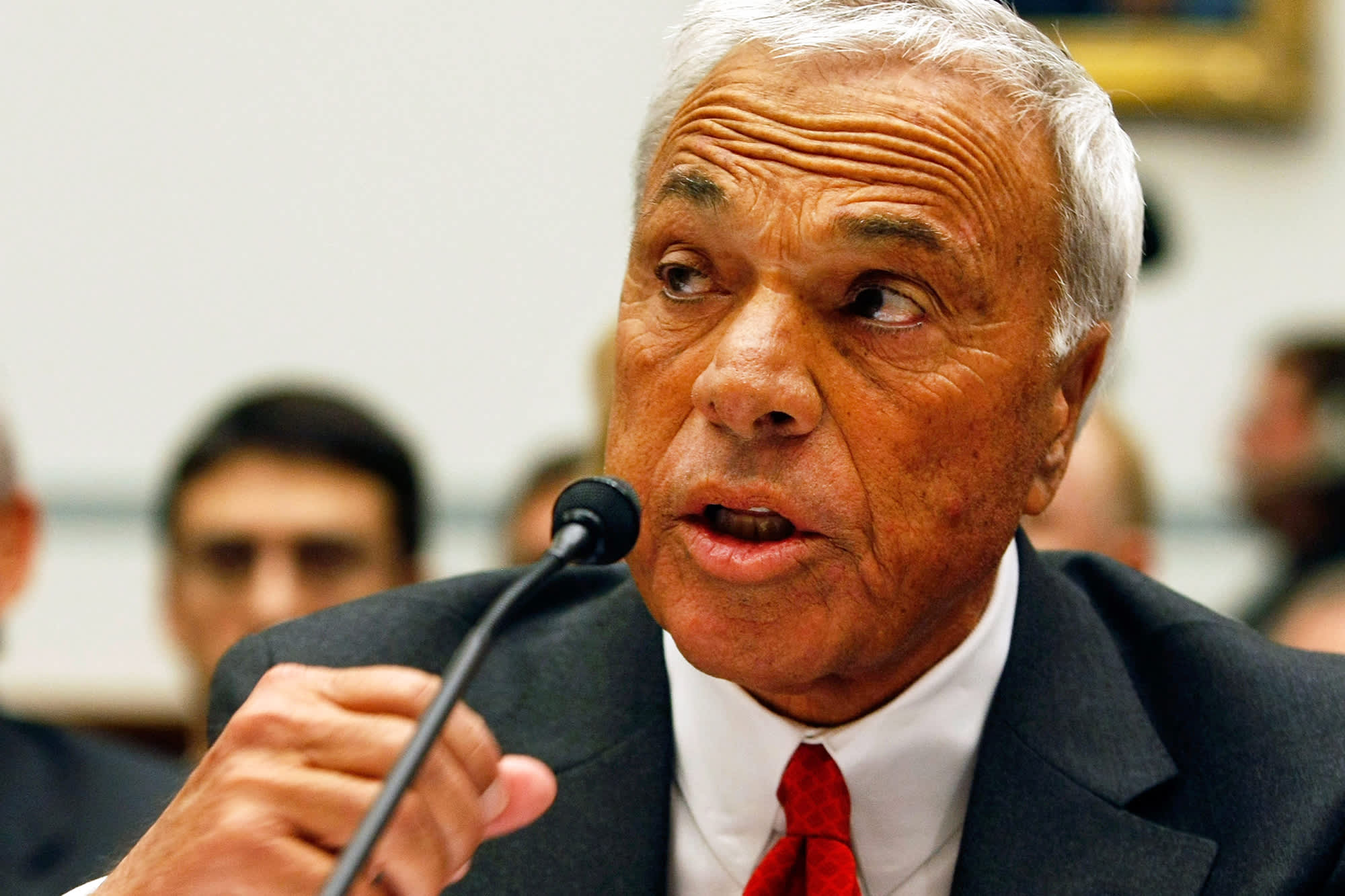Former Countrywide CEO Angelo Mozilo says the financial crisis wasn't his fault: 'We did what we... - 3 minutes read

Angelo Mozilo, founder and former CEO, Countrywide Financial Corporation, testifies during a House Oversight and Government Reform hearing, March 7, 2008 in Washington.
Getty Images
With his perpetual deep tan and coiffed white hair, Angelo Mozilo, for many, was one of the enduring faces of the financial crisis.
Too enduring, in fact, for his taste.
Looking back more than a decade later, the former head of Countrywide Financial, whose sprawling subprime loan business symbolized the financial recklessness of the real estate bubble, said he's become a convenient scapegoat without justification.
"Everybody blames the subprime. To me, it's nonsense," he said this week at the SALT 2019 conference in Las Vegas. "If you take the totality of the subprime assets, the value of the subprime business that existed at the time ... it was a puddle in an ocean. But it's an easy target for the politicians and media to attack, to rile people up about. But it was not the cause at all."
"Real estate values became very, very inflated; asset values throughout the financial industry became very, very inflated; and a bubble was created, and it didn't take much to penetrate that bubble, " he added.
Most historical accounts remember things differently.
Loans to unqualified buyers are generally seen as the flame that lit the financial crisis's fuse. When housing prices began to deteriorate, borrowers defaulted in droves. That set off a panic on Wall Street, which had underwritten and securitized those loans using exotic, opaque financial instruments that lost value due to the defaults. A liquidity crisis erupted when the overnight lending business between big banks fell apart, leading to the seminal Sept. 15, 2008 collapse of investment bank Lehman Brothers.
Financiers became the villains of the crisis. Mozilo was among those marched in front of Congress to explain their actions. The huge amounts of money made by industry executives became an easy target for politicians, as information came to light that Mozilo made more than $400 million during a seven-year stretch leading to 2006, when the market began to come apart.
Mozilo remembers the time as a horrible personal period for himself and his family, which he said was unwarranted for a company that he said merely wanted to make financing available to constituents, primarily minorities, who couldn't go to traditional banks.
"We did what we felt was right for the industry, for the company, for our shareholders," he said. "I hated to see my family go through this. I hated to see my poor wife go through this. Constant banging on our door, breaking of windows — the things that went on were unbelievable."
Ultimately, Bank of America absorbed Countrywide as the company lost astounding amounts of money and its shares plunged. Although the company faced accusations that it duped borrowers into mortgages they didn't understand, Mozilo was never charged with a crime.
Looking back now, he said his reputation was sullied unduly, but he does not seek revenge.
"Of course it bothers me. It affected my reputation, it affected my family, it had a profound impact on my entire life. So I cared," he said. "Then a lot of years went by, and my wife passed away, and I turned 80 years old, and now I don't care. There other things more important in life."
The audience at SALT, made up mostly of hedge-fund managers and other wealth management pros, applauded.